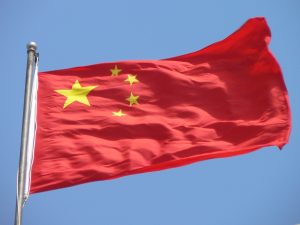Tensions between Beijing and Western governments escalated this week, following a sanctions showdown that will further derail diplomatic efforts and threaten a landmark EU-China trade deal.
On March 22, China retaliated against coordinated sanctions by the European Union, the United States, the United Kingdom, and Canada over atrocities in Xinjiang. The Western sanctions, imposed on Chinese officials for abuses against Uyghur Muslims and welcomed in a joint statement by New Zealand and Australia, mark the first punitive measures taken by the EU on human rights issues in China since the Tiananmen Square massacre in 1989.
In response, Beijing slapped sanctions on varied individuals and entities in the EU, ranging from politicians to researchers in Germany, Sweden, and Denmark. Targets include the Mercator Institute for China Studies, the largest European think tank focusing on China; scholars Adrian Zenz from Germany and Bjorn Jerden from Sweden; and several members of the European Parliament deemed by the Chinese Foreign Ministry to “severely harm China’s sovereignty and interests and maliciously spread lies and disinformation.” Russia joined China in condemning the Western sanctions in a statement, after a meeting between the foreign ministers in southern China on Tuesday.
The move marks a drastic deterioration in political relations, at a time when politicians from the EU in particular have made pains to exercise restraint, experts say.
China’s retaliatory measures will put further pressure on an EU-China investment deal that focuses on expanding investment opportunities for EU companies in the Chinese market – a long-term goal in EU policy toward Beijing. The deal, which politicians have indicated will not be able to advance unless the sanctions against parliament are lifted, has been met with criticisms by human rights groups since it was announced in December.
“The EU sanctions against specific Chinese officials in Xinjiang were very modest,” said Steve Tsang, director of the SOAS China Institute. He pointed out that while the United States placed sanctions on Chen Quanguo, the Xinjiang party secretary who sits on China’s powerful Politburo, the EU did not. The measures, Tsang said, “were extremely calibrated in order to basically do something, but not to an extent that would necessitate a response from the Chinese.”
On March 24, China’s State Council Information Office also issued a report on human rights violations in the United States, criticizing the country over racism, financial inequality, and its pandemic response. The report – released annually in response to U.S. criticisms of human rights issues in China, ranging from crackdowns on Tibet to Hong Kong – connects China’s success in controlling the coronavirus within its borders to what it claims to be the benefits of Beijing’s political system.
It follows a series of deflective Twitter comments by Chinese Foreign Ministry spokeswoman Hua Chunying on Tuesday, accusing Western countries of hypocrisy over human rights and highlighting past atrocities from the Holocaust to the massacre of Algerians by French colonial authorities.
Foreign firms have also taken hits following the diplomatic row, with retailers H&M and Nike facing sudden online backlash over statements made last year expressing concern over reports of Uyghurs being forced to pick cotton in Xinjiang.
The current wolf warrior-style diplomacy practiced by Chinese officials comes from a place of wanting to perform patriotism for Chinese President Xi Jinping – a trend that has strained diplomatic efforts in recent years, according to Tsang.
“Most [Western states] are trying very hard to appear to domestic constituencies that they are doing the right thing, without picking a fight with the Chinese government,” Tsang said. “The Chinese response was disproportionate, indefensible and an overkill.”
































